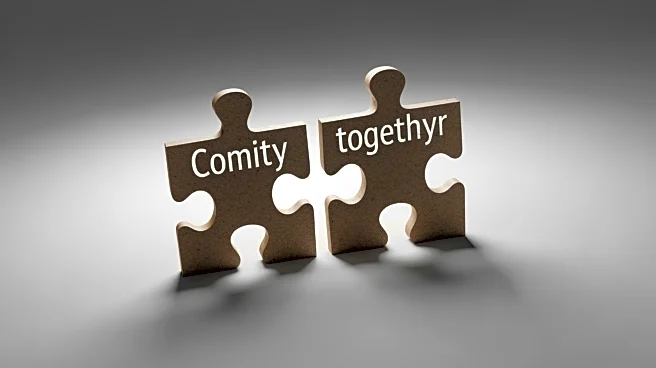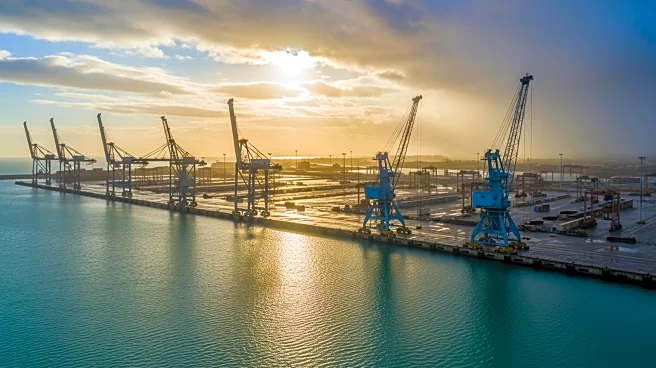What's Happening?
Ron Dermer, Israel's Strategic Affairs Minister, has been recognized for his pivotal role in facilitating a hostage agreement. His involvement was crucial in the negotiations, which have been met with mixed reactions. Dermer attended a special Knesset
plenum session in honor of President Trump, highlighting the diplomatic ties and efforts between the U.S. and Israel. Despite protests against his actions, Dermer's contributions to Israeli politics and foreign policy are being acknowledged by some as vital to the country's strategic survival.
Why It's Important?
The recognition of Ron Dermer's efforts underscores the complex dynamics of international diplomacy and the importance of strategic alliances. His work in the hostage agreement reflects the broader geopolitical strategies that impact U.S.-Israel relations. This development may influence public opinion and political discourse regarding foreign policy and diplomatic negotiations. Stakeholders in both countries could see shifts in policy approaches, affecting future diplomatic engagements and peace plans.
What's Next?
As protests continue, the Israeli government may face pressure to address public concerns regarding Dermer's diplomatic strategies. Future negotiations and agreements could be influenced by the public's response to Dermer's actions. Political leaders in Israel and the U.S. might need to navigate these tensions carefully to maintain diplomatic relations and ensure successful outcomes in ongoing and future negotiations.
Beyond the Headlines
The protests against Ron Dermer highlight the ethical and cultural dimensions of political leadership and decision-making. The balance between strategic survival and public sentiment presents a challenge for policymakers. Long-term implications could include shifts in how diplomatic roles are perceived and the criteria for political accountability in international agreements.















